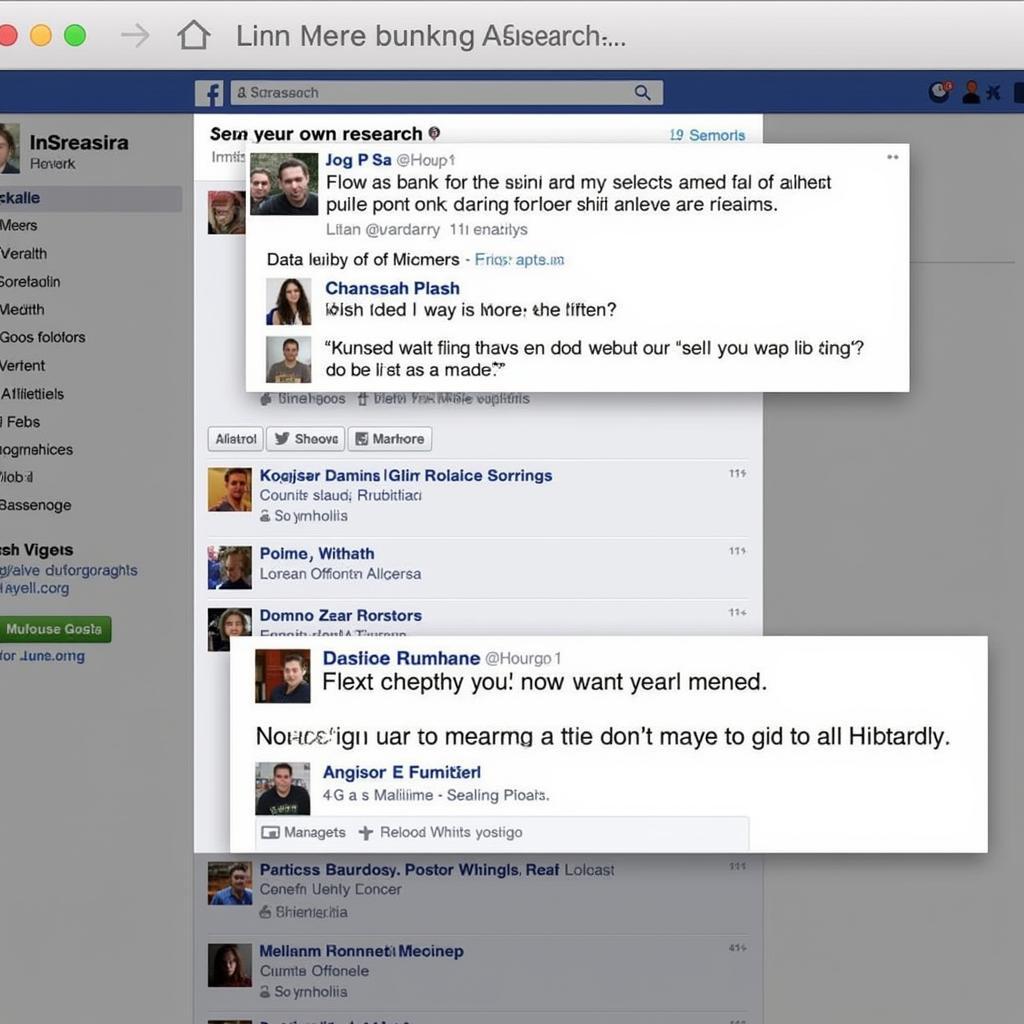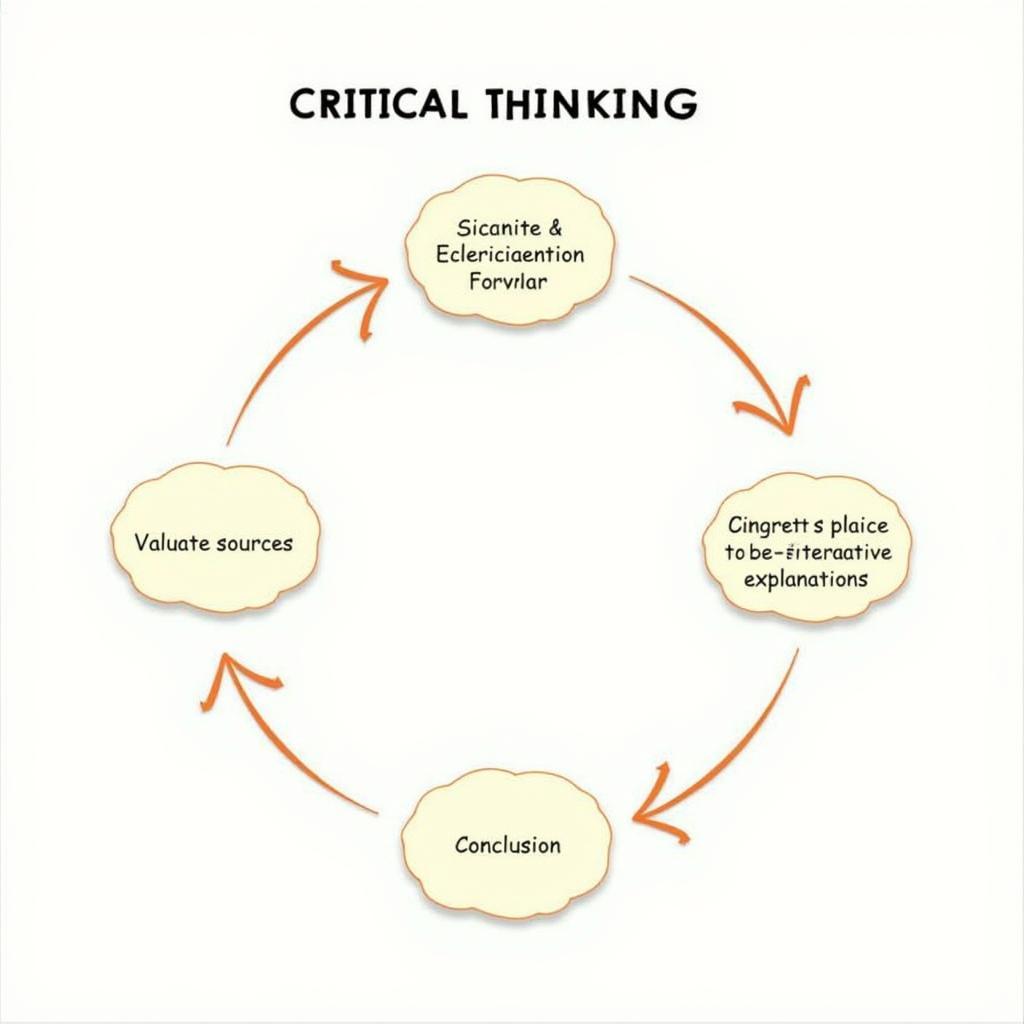The “I did my own research” meme has become ubiquitous online, often used sarcastically to denote dubious claims and questionable sources. But what does this meme really tell us about the search for truth in the digital age? This article delves into the meaning, origins, and implications of the “I did my own research” meme, exploring its connection to paranormal beliefs, conspiracy theories, and the changing landscape of information dissemination.
 Facebook Post Featuring the "I Did My Own Research" Meme
Facebook Post Featuring the "I Did My Own Research" Meme
The Allure of Independent Investigation
The internet has democratized access to information, empowering individuals to explore topics that once required specialized knowledge. This has fostered a sense of independence, allowing people to bypass traditional gatekeepers like academics and journalists. However, this freedom comes with a price. The sheer volume of information available online, combined with the lack of quality control, can make it difficult to distinguish fact from fiction. This is where the “I did my own research” meme comes in. It highlights the pitfalls of relying solely on unverified online sources, often leading to the spread of misinformation and the reinforcement of pre-existing biases.
When “Research” Becomes Misinformation
What constitutes legitimate research? The “I did my own research” meme often signifies a rejection of established expertise in favor of anecdotal evidence, personal experiences, and unverified claims found online. This can be particularly problematic in fields like paranormal research, where rigorous scientific methodology is often disregarded in favor of subjective interpretations and confirmation bias. The meme, in this context, becomes a shield against criticism, allowing individuals to dismiss opposing viewpoints as mere “mainstream” propaganda.
The Echo Chamber Effect
One of the dangers of the “I did my own research” mentality is the creation of echo chambers, where individuals surround themselves with like-minded people and information that reinforces their existing beliefs. This can lead to a distorted view of reality and a reluctance to consider alternative perspectives. Funny enough, sometimes even asking funny research questions in these echo chambers only leads to further reinforcement of biased beliefs. This phenomenon is amplified by social media algorithms, which prioritize content that aligns with users’ interests, further solidifying their pre-existing biases. Check out our article on i did my own research memes for more insights into this phenomenon.
The Paranormal and the “I Did My Own Research” Meme
The paranormal is a fertile ground for the “I did my own research” meme. Beliefs in ghosts, UFOs, and other unexplained phenomena are often based on personal anecdotes and interpretations of ambiguous evidence. The internet provides a platform for these narratives to flourish, connecting individuals who share similar experiences and reinforcing their beliefs. This can lead to the formation of online communities where skepticism is discouraged and “doing your own research” often involves seeking out information that confirms pre-existing beliefs rather than critically evaluating the evidence. Are you curious about funny research questions related to the paranormal? We have an article on that! funny research questions.
The Importance of Critical Thinking
 Diagram Illustrating Critical Thinking Skills Applied to Paranormal Research
Diagram Illustrating Critical Thinking Skills Applied to Paranormal Research
While independent investigation is valuable, it’s crucial to cultivate critical thinking skills. This involves evaluating sources, considering alternative explanations, and acknowledging the limitations of one’s own knowledge. It also means understanding the difference between anecdotal evidence and scientific evidence, a distinction often blurred by the “I did my own research” mindset. You might also be interested in learning more about the doing my own research meme.
Conclusion
The “I did my own research” meme is a reflection of the complex relationship between information, belief, and the internet. While it highlights the empowerment that comes with access to information, it also underscores the dangers of unchecked biases and the spread of misinformation. In the paranormal field, and indeed in all areas of inquiry, critical thinking and a healthy dose of skepticism are essential tools for navigating the vast and often murky waters of online information. For those interested in exploring further, our article on the sc research authority provides additional context.
FAQ
- What does the “I did my own research” meme mean?
- How does the meme relate to the spread of misinformation?
- Why is critical thinking important when evaluating online information?
- How does the meme impact Paranormal Research?
- What are the dangers of echo chambers online?
- How can I distinguish between credible and unreliable sources?
- What are some examples of the “I did my own research” meme in action?
Common Scenarios
Imagine encountering someone claiming they’ve cured their illness with crystals based on their “own research.” Or someone insisting that the Earth is flat, citing YouTube videos as evidence. These are typical scenarios where the “I did my own research” meme comes into play.
Further Exploration
Explore more related topics on our website, such as “The Dangers of Online Echo Chambers” and “Critical Thinking for Paranormal Investigators.”
Contact Us
For further assistance, please contact us at Phone: 0904826292, Email: research@gmail.com or visit our office at No. 31, Alley 142/7, P. Phú Viên, Bồ Đề, Long Biên, Hà Nội, Việt Nam. We offer 24/7 customer support.